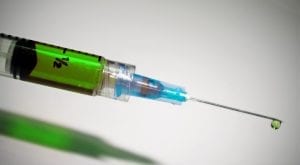Two NECC executives in Massachusetts are contesting their guilty verdicts while another two employees face second-degree murder charges in Michigan.
Two defendants found complicit in a nationwide meningitis outbreak are asking a federal judge to overturn their verdicts and dismiss charges of conspiring to defraud regulators.
According to The Tennessean, attorneys for Gregory Conigliaro, former president and partial owner of the Massachusetts-based New England Compounding Center, accused federal prosecutors of “grasping at straws.”
In a 90-minute hearing, attorney Daniel Rabinowitz claimed it was a “legal impossibility” for Conigliaro to defraud regulators. That, Rabinowitz said, is because the U.S. Food and Drug Administration has exempted itself from regulating compounding companies like the NECC.
Michael Pineault, representing co-defendant Sharon Carter, made a similar argument, saying the FDA “intentionally chose not to assert its authority” over compounders.
The Tennessean writes that Conigliaro, Carter and three other individuals associated with the NECC were convicted by jury following eight weeks of trial and deliberation. The charges were many and varied, ranging from racketeering to mail fraud and conspiracy.
The hearings come on the tail-end of a two-year investigation. Lax protocols and intentional deceit at and by the NECC purportedly led to a lethal outbreak of fungal meningitis, infecting patients in 20 states and claiming at least 100 lives.

U.S. District Judge Richard G. Steams agreed to take the appeals under advisement. And the Tennessean notes that he did so approvingly, sympathizing with Pineault’s attack on the FDA’s jurisdiction.
Carter, notes the paper, acted as an operations manager at the NECC. U.S. Attorney George Varghese referred to her role as that of an “enforcer,” signing off on hundreds of phony prescriptions. According to Varghese, Conigliaro lied to the FDA about its protocols for over a decade, saying the NECC only disbursed medications for real prescriptions and real patients.
Varghese claims there’s “absolutely no reason to overturn the jury’s verdict,” given his belief that Pineault’s “legal impossibility” defense can’t be applied in the NECC’s case.
But Carter and Conigliaro are facing minor charges in relation to their colleagues elsewhere. In Michigan, two men connected with the meningitis outbreak have been indicted on 11 counts of second-degree murder.
Barry Cadden and Glenn Chin are accused of complicity in the deaths of Donna Kuzinch, Paula Brent, Lyn Lapierriere, Sally Roe, Mary Pietti, Gayle Gibson, Patricia Malafouris, Emma Tod, Jennie Barth, Ruth Madhouse and Karina Baxater, all late residents of Michigan.
The 11 victims, like others affected by the NECC’s negligence, received tainted medications.
Federal prosecutors consider the case the “largest public health crisis ever caused by a pharmaceutical product.”
All the while, claim prosecutors, Cadden was directing NECC employees to assure “customers that they were getting safe drugs, while [he] ignored grave environmental failures, used expired active ingredients, and took innumerable other production shortcuts that led to numerous, entirely preventable deaths.”
Chin, says MichiganRadio.org, allegedly assisted by manufacturing vials of poorly-made steroids intended to be injected into patients’ spines.
Chin and Cadden were also convicted of racketeering, conspiracy and fraud charges by Massachusetts juries.
Both men are expected to have preliminary hearings on the second-degree murder charges this week.
Sources
2012 meningitis outbreak: 2 convicted NECC employees want verdict tossed
Updates on two Massachusetts men facing murder charges for Michigan meningitis deaths


Join the conversation!